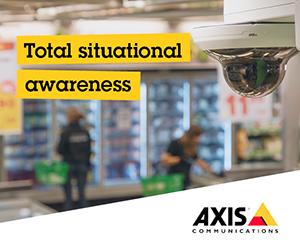LAW ENFORCEMENT
The case for the prosecution
How the Crown Prosecution Service (CPS) determines whether a criminal case should be prosecuted
By Daren Streeter
English law has been held in high regard for its reputation for fairness and willingness to seek justice without fear or favour for more than 1,000 years. But many commentators believe the law is showing its age and its chronic lack of resourcing.
Rather like an arthritic joint, it is seen as no longer lean and agile but painfully slow in the digital age where risk profiles have changed beyond recognition. A cyber-crime can be half way around the world before the law enforcement community has got its boots on to give chase.
From a call to the Police to the ultimate prosecution of a fraudster, dishonest employee, or store thief, the process is at best fragile and at worst destined to self-destruct, usually as the result of flawed evidence (missing documentation, CCTV, and so forth), not to mention the ever-present spectre of under-resourcing within the criminal justice system. Fewer experienced Police officers and different forces with separate criminal priorities are just half the issue. Once a case has successfully cleared the Police protocols, only the watertight ones will survive to have their day in court—and even that does not guarantee a successful prosecution.
In this article, Daren Streeter, senior district Crown prosecutor for the Crown Prosecution Service (CPS) London South, explains the decision-making process that the CPS employs when bringing cases to court and provides some guidance for businesses so that they can help the Police secure the best evidence to bring a successful prosecution. This is not meant as a rough guide to rough justice; instead, it provides practical examples of the quality of the evidence required. In this respect it can help businesses to focus their resources on what the Police and CPS need in terms of a paper trail and credible witnesses.
The Role of the CPS
The CPS prosecutes criminal cases that have been investigated by the Police and other investigative organisations in England and Wales. It works in partnership with the Police, courts, the Attorney General’s Office, the Home Office, the Ministry of Justice, and other agencies throughout the criminal justice system. However, the CPS is an independent organisation, and decisions are made independently of the Police and Government.
Around 6,000 people work for the Crown Prosecution Service across England and Wales in a variety of roles. Almost half our employees are lawyers who are responsible for deciding whether to prosecute cases and who represent the Crown in many hearings in the courts. The rest of our staff work to assist prosecutors in preparing cases for court, or in other professions including operational delivery, finance, human resources, communications, and digital and technology services.
In 2016–17, we prosecuted 588,021 cases and secured convictions in 83.9 per cent of our cases. The CPS is tasked with making sure that the right person is prosecuted for the right offence before the right court in order to bring offenders to justice wherever possible.
The CPS decides which cases should be prosecuted, determines the appropriate charges in more serious or complex cases, and advises the Police during the early stages of investigations. It also prepares and presents cases at court and provides information, assistance, and support to victims and other prosecution witnesses.
Prosecutors must be fair, objective, and independent. When deciding whether to prosecute a suspect, our lawyers follow the Code for Crown Prosecutors (the Code). The Code sets out the basic principles to be followed when making case decisions. The decision on whether or not to prosecute a case against a suspect is based on the full Code test, which has two stages: the evidential stage and the public interest stage. The CPS will only start or continue a prosecution if a case has passed both stages.
Evidential Stage. Crown Prosecutors must be satisfied that there is enough evidence to provide a “realistic prospect of conviction” against each defendant on each charge. They must consider whether the evidence can be used and is reliable. They must also be cognisant of what the defence case may be and how that is likely to affect the prosecution case.
A “realistic prospect of conviction” is an objective test. It means that a jury or a bench of magistrates properly directed in accordance with the law will be more likely than not to convict the defendant of the charge alleged. (This is a separate test from the one that criminal courts themselves must apply. A jury or magistrates’ court should only convict if it is sure of a defendant’s guilt). If the case does not pass the evidential stage, it must not go ahead, no matter how important or serious it may be.
Public Interest Stage. If the case does pass the evidential stage, Crown Prosecutors must then decide whether a prosecution is needed in the public interest. They must balance factors for and against prosecution carefully and fairly. Some factors may increase the need to prosecute, but others may suggest that another course of action would be better.
A prosecution will usually take place unless there are public interest factors tending against prosecution that clearly outweigh those tending in favour. The following issues, amongst others, are considered when making public interest decisions:
How serious is the offence alleged?
The more serious the offence, the more likely a prosecution is required. When looking at this, the prosecutor will take into account a variety of factors including the harm caused to the victim.
How culpable is the suspect in the commission of the offence?
We look at, amongst other things, how involved someone is in the offending alleged, their role in that offence, whether the offence was planned or premeditated, and whether the suspect has been involved in committing criminal offences/similar incidents before. We will also consider a suspect’s age and any mental or physical health issues they may have.
What were the circumstances of and the harm caused to the victim?
This includes things such as whether the victim is vulnerable or was at the time a person serving the public. We also will take into account whether the offence was motivated by any form of discrimination based upon the victim’s ethnic or national origin, gender, disability, age, religion or belief, sexual orientation, or gender identity, or whether the suspect demonstrated hostility towards the victim based on any of those characteristics. If any of these factors are present, then a prosecution is generally more likely to be required. For business, we will obviously consider the impact of the offending upon the business, its employees, shareholders, and so forth.
What is the age of the suspect?
In particular, was the suspect under the age of eighteen at the time of the offence? The purpose of the criminal justice system when dealing with those under eighteen is to prevent reoffending, and the best interests and welfare of the child or young person must be considered, including whether it is likely to have an adverse impact on their future prospects that is disproportionate to the seriousness of the offending.
We see a wide range of offending involving businesses and their employees, from the less serious shoplifting and public disorder, through to multimillion-pound fraud and armed robbery. It is also worth remembering that those you employ may themselves at some point be the victim of a crime, and in some rare case, your employees may be suspected of committing a crime against your business.
As outlined above, our robust process for reviewing cases means that prosecutions we conduct generally result in convictions. However, a myriad of issues and hurdles can impact the ability of Police officers to gather sufficient evidence for us to prosecute an offence, and common issues arise that do impact our ability to successfully prosecute cases.
The following tips are aimed at giving general guidance on how to improve the chances of a conviction and are the result of my many years prosecuting in court and seeing matters fail:
- Witnesses who are asked to attend court to give evidence will often find the prospect of giving evidence highly
stressful. We see employees who are reluctant to come to court because of this. Those who are concerned about
coming to court can ask for support to enable them to give their evidence and should be encouraged to speak to the
Police about support available in their area. Please also consider what support you can provide to help them through
the court process.
- Those employed in jobs that traditionally have high turnover rates are often no longer employed by the business
concerned when the case comes to court. As a result they often do not attend court. This is often a problem with loss
prevention and security officers in particular. If an employee is to move positions, please ensure that Police officers
are informed and that, where possible, you maintain contact with the employee concerned.
- Security systems (including CCTV) need to be maintained and in working order, and any records of events should be
kept so that the Police can seize these as part of their investigation. Occasionally, the Police may be delayed in
require that evidence.
request from the Police for a statement. Any note or statement should be prepared by the witness without any
reference to other evidence (such as CCTV or other evidence from colleagues). Witnesses should not discuss their
evidence with other potential witnesses.
- Fraud is often committed by employees. The Police will, as part of the evidence building, frequently request details of
the processes that employees should follow, the training given to ensure that the process is known to all, plus
evidence of what processes are actually operated by employees (as these will often differ from the process that
should be operated). Evidence of governance and compliance processes in place to monitor that process may often
be requested.
If you have any concerns about crime committed against your business, please speak to your local Police station as soon as possible.
Challenging Decisions Made
If the CPS either refuses to prosecute a case referred to them by the Police or later drop a case, businesses, like any other victim, can seek a review of that decision under the CPS’s Victims’ Right to Review (VRR) scheme.
The VRR scheme makes it easier for victims to seek a review of a CPS decision not to bring charges or to terminate all proceedings. Please note that the scheme applies only in relation to qualifying decisions (see further below) made on or after 5 June 2013.
The victims’ Code sets out enhanced entitlements for victims of the most serious crimes, persistently targeted victims, or vulnerable or intimidated victims groups because they are more likely to require enhanced support and services through the criminal justice process. If you are entitled to enhanced assistance under the victims’ Code, you will be offered a meeting at the end of the review process to discuss the outcome.
Under this scheme, you can seek a review for qualifying decisions, namely the following CPS decisions:
1. Not to charge, to discontinue (or withdraw in the Magistrates’ Court) all charges thereby ending all proceedings.
2. To offer no evidence in all proceedings.
3. To leave all charges in the proceedings to “lie on file” (the term used in circumstances where the CPS makes a decision not to proceed and requests that the charges be allowed “to lie on the file” marked “not to be proceeded with without the leave of this Court or the Court of Appeal”).
But there are some exceptions to this rule, including where the Police exercise their independent discretion not to investigate or pursue a case further (whether in consultation with the CPS or not) and the CPS has not been requested to make a formal decision to charge. Requests for review of such decisions must be addressed to the relevant local Police service.
Other exceptions include cases that are concluded by way of out-of-court disposal, such as cautions, conditional cautions, and penalty notices for disorder, intended for dealing with low-level, often first-time offending, where prosecution would not be in the public interest.
In all incidents of decision appeal, victims should contact the CPS office where the decision was made, preferably by email or telephone within five working days of the decision. A delayed request may increase the likelihood of the court finding difficulty with any decision to commence or recommence proceedings following the review. The CPS does, however, take this opportunity to provide reassurance that, where the law permits, requests for review will be considered for up to three months from the communication of the qualifying decision. Any delay beyond the three months will only be allowed in exceptional circumstances taking into account the facts of the individual case.
When the CPS receives your request for review, the decision will be reconsidered by a prosecutor who has not been involved with the case previously, and we will ensure that you have been provided with a clear and detailed explanation of the decision. There are three possible outcomes to local resolution activity:
1. The CPS may decide that the decision (not to bring charges, discontinue, or offer no evidence) was wrong, and
where possible, proceedings will recommence.
2. We may decide that the decision was right but that we ought to provide you with more information about the decision. If this is the case, we will ask you to confirm whether you would like us to undertake an independent review of the decision. We will provide details of the office to contact and ask that you do so within ten working days.
3. We may decide that the decision was right and that there is no further information to be provided. In these circumstances, we will proceed directly to independent review.
Activity at the local resolution stage will normally be completed within ten days of receipt of the request for review.
The Independent Review
Where we have been unable to resolve the issue to your satisfaction at local resolution, the decision will be independently reviewed. The review will comprise a reconsideration of the evidence and public interest. In other words, a reviewing prosecutor, independent of the original decision, will approach the case afresh to determine whether the original decision was right or wrong. We will contact you with the outcome of the review, and if you are entitled to enhanced assistance under the victims’ Code, you will be offered a meeting to discuss the outcome.
The qualifying decision will be communicated to you promptly in accordance with the time limits set out in the victims’ Code.
You should (normally) contact us within five working days from the date of the communication of the decision to advise us that you would like us to review the decision. However, the VRR scheme can be exercised for up to three months after the communication of the decision.
An early request allows for a prompt review and, where appropriate, proceedings to be commenced or recommenced as quickly as possible. Conversely, a delayed request may increase the likelihood of the court finding difficulty with any decision to commence or recommence proceedings following the review. In some circumstances, it will not be possible to commence or recommence proceedings if there is a delayed request for review.
As stated previously, we do take this opportunity to provide reassurance that, where the law permits us to do so, we will consider requests for review for up to three months from the communication of the qualifying decision. Any delay beyond the three months will only be allowed in exceptional circumstances taking into account the facts of the individual case.
Any action taken to provide a local resolution will be completed within ten working days. If we have provided a further explanation of the decision, you then have ten working days to let us know whether you are satisfied with the explanation given or whether you would like to proceed to an independent review of the case. We will, wherever possible, complete the independent review and communicate the outcome to you within an overall timeframe of thirty working days (six weeks). Where the case is particularly complex or sensitive, it is likely that it will not be possible to provide the outcome within the usual time limits. If this happens, we will tell you and send you regular updates (although not more frequently than every twenty working days) until the outcome is decided.
Daren STREETER joined the CPS as paralegal in 1990. In 1998 after qualifying as a solicitor, he was appointed as a Crown Prosecutor. Two years later Daren became Senior Crown Prosecutor before becoming a District Crown Prosecutor. Since 2015, he has fulfilled the role of Senior District Crown Prosecutor responsible for managing a number of units across London.





